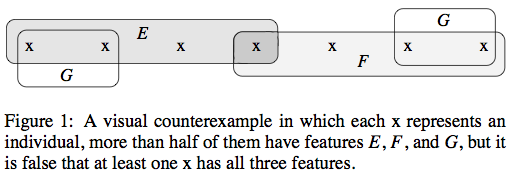Posts in Category: poster
poster at a conference or research meeting
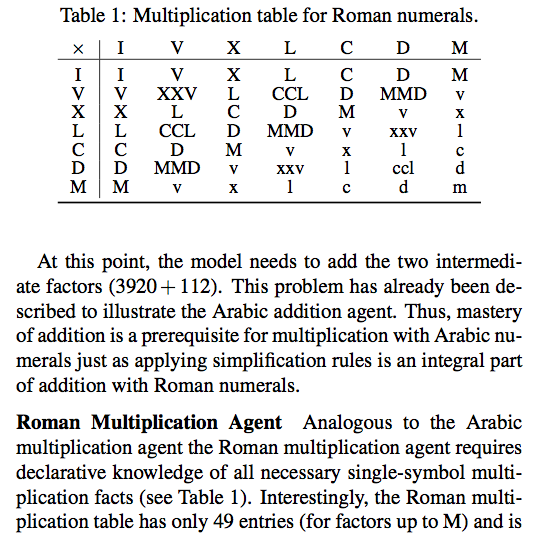
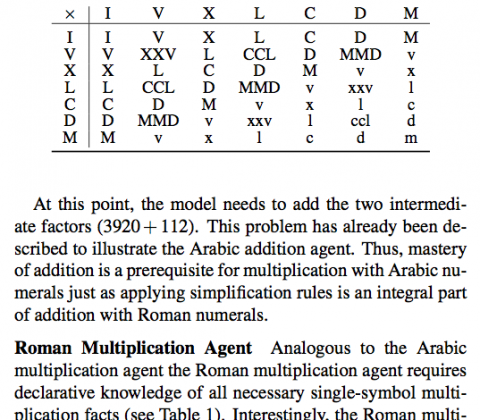
Paper: Arithmetic with Arabic vs. Roman numerals
| … how information is represented can greatly affect how easy it is to do different things with it. (…) it is easy to add, to subtract, and even to multiply if the Arabic or binary representations are used, but it is not at all easy to do these things — especially multiplication — with Roman numerals. This is a key reason why the Roman culture failed to develop mathematics in the way the earlier Arabic cultures had. |
| D Marr (1982): Vision, p. 21 |
Dirk Schlimm, Hansjörg Neth
Modeling ancient and modern arithmetic practices: Addition and multiplication with Arabic and Roman numerals
Abstract: To analyze the task of mental arithmetic with external representations in different number systems we model algorithms for addition and multiplication with Arabic and Roman numerals. This demonstrates that Roman numerals are not only informationally equivalent to Arabic ones but also computationally similar — a claim that is widely disputed. An analysis of our models’ elementary processing steps reveals intricate trade-offs between problem representation, algorithm, and interactive resources. Our simulations allow for a more nuanced view of the received wisdom on Roman numerals. While symbolic computation with Roman numerals requires fewer internal resources than with Arabic ones, the large number of needed symbols inflates the number of external processing steps.
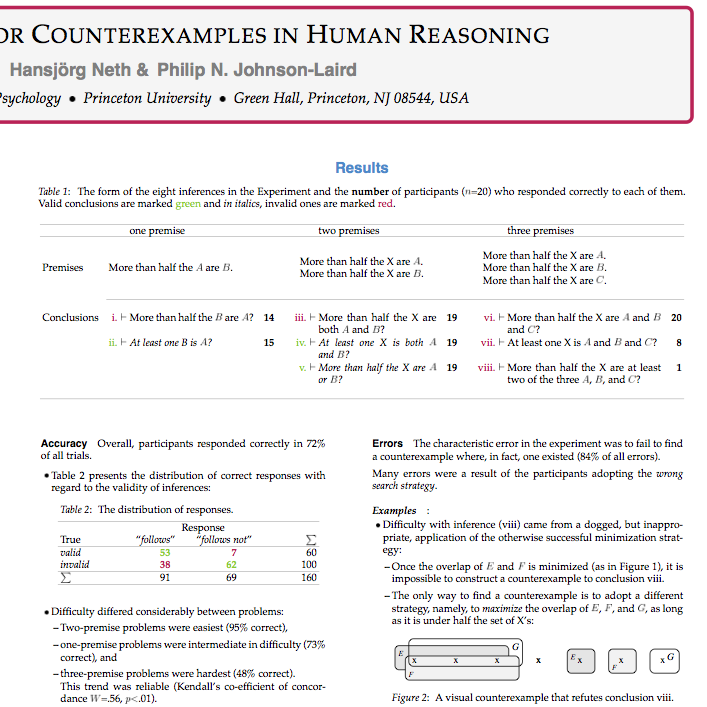
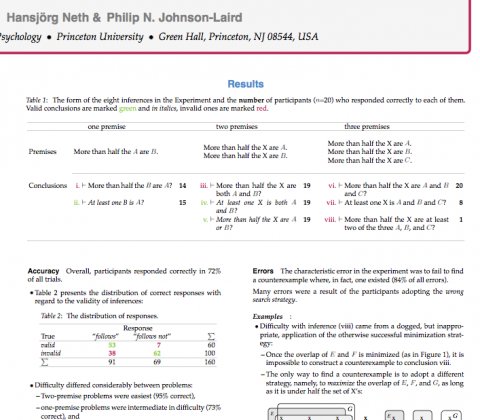
Paper: Searching for counterexamples
| If it was so, it might be; and if it were so, it would be; but as it isn’t, it ain’t. That’s logic. |
| Tweedledee (Lewis Carroll, Through the Looking Glass and what Alice found there, 1872) |
Hansjörg Neth, Philip N. Johnson-Laird
The search for counterexamples in human reasoning
Research question: A major point of contention about human reasoning is whether or not individuals search for counterexamples to conclusions. According to theorists who argue that the mind is equipped with tacit rules of inference, the decision that an argument is invalid depends on a failure to find a derivation leading from the premises to the conclusion (see e.g., Rips, 1994). However, with this procedure, one can never be cer- tain that the space of possible derivations has been searched exhaustively. Alternatively, reasoners may base their inferences on mental models (Johnson-Laird and Byrne, 1991). This theoretical account rests on the semantic principle of validity: a conclusion is valid if and only if it allows for no counterexamples, i.e., possibilities in which the premises are true but the conclusion is false. Hence, by constructing a counterexample, reasoners are able to know that an inference is invalid.
Method: To search for a search for counterexamples, we carried out an experiment in which the participants had to evaluate eight inferences based on non-standard quantifiers. Quite common in everyday life, such inferences call for a higher-order predicate calculus, which is incomplete.
Results: A striking phenomenon was the participants’ spontaneous use of a variety of strategies. In 80% of all trials, they constructed a single specific instance of the premises. Typically, the participants constructed a diagram in which they tried to minimize the overlap between the given sets. Indeed, every single participant came up with at least one counterexample. Our study has shown (…) that logically naive individuals do spontaneously search for counterexamples for at least one sort of deduction.
Keywords: Logic, thinking and reasoning, syllogisms with non-standard quantifiers, mental model theory, counterexamples.
Reference: Neth, H., & Johnson-Laird, P. N. (1999). The search for counterexamples in human reasoning. In M. Hahn, & S. C. Stoness (Eds.), Proceedings of the 21st Annual Meeting of the Cognitive Science Society (p. 806). Mahwah, NJ: Lawrence Erlbaum.
Related: Suppression effects | Diploma thesis
Resources: Download PDF | Google Scholar
